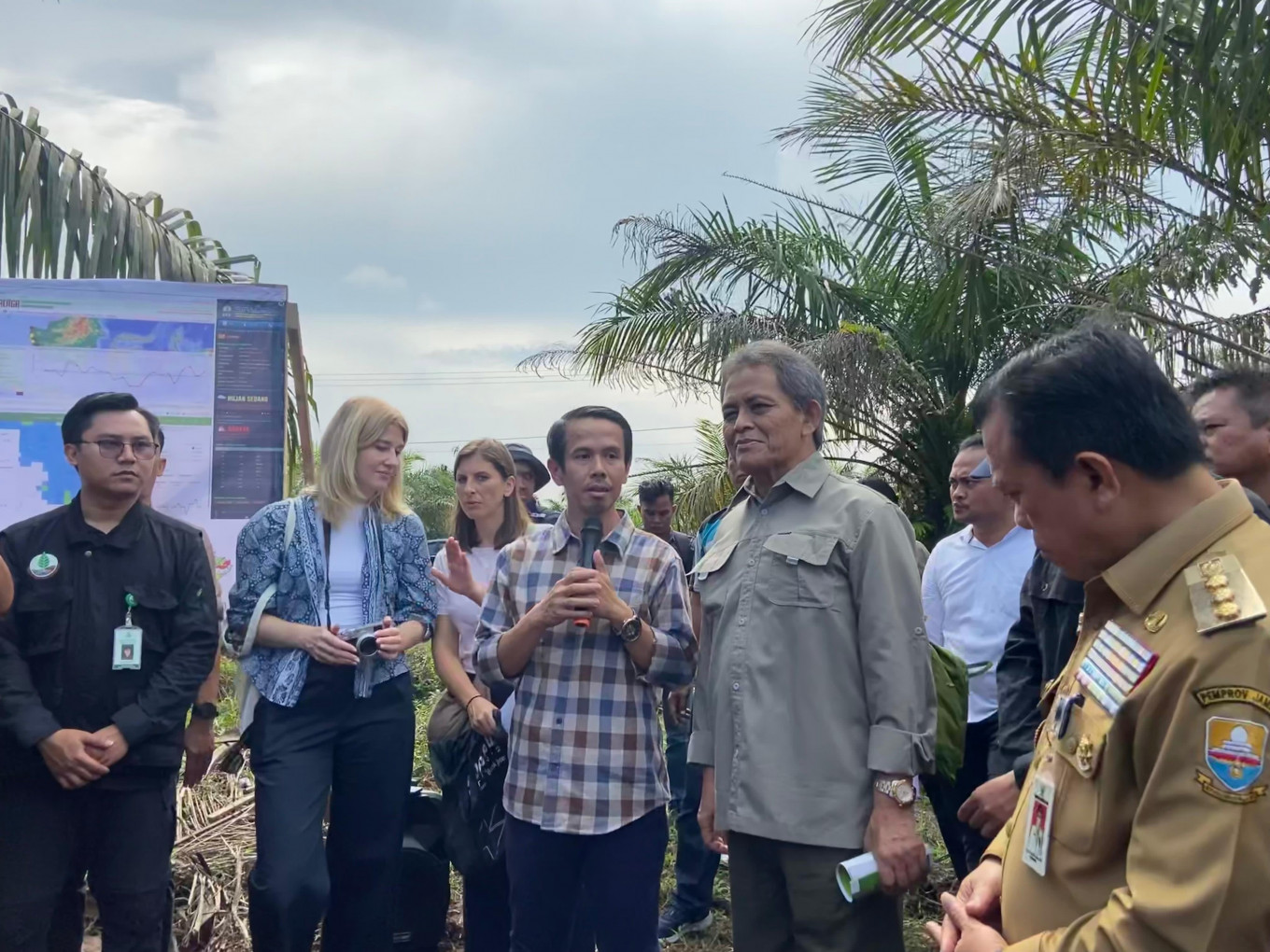Popular Reads
Top Results
Can't find what you're looking for?
View all search resultsPopular Reads
Top Results
Can't find what you're looking for?
View all search resultsDisaster pooling fund: An innovative solution for financing disaster risks
Change text size
Gift Premium Articles
to Anyone
I
ndonesia is always on alert for potential earthquakes and other major tectonic threats. Critical faults such as Lembang, Cimandiri and Baribis in West Java, alongside the Mentawai-Siberu and Anjak Weyland in Papua have shown an increase in seismic activities within the past few months.
Moreover, there has been a string of earthquakes across the country. The most recent one being the Bogor-Sukabumi earthquake, which had a magnitude of 4.0 and which occurred on Sept. 21. This was also followed by 29 subsequent earthquakes.
Before that, a 6.5-magnitude earthquake hit Nabire, Central Papua on Sept. 19, while West Nias was also shaken by an earthquake related to the Mentawai-Siberu earthquake in May. Bekasi, West Java, was also struck by a 4.5-magnitude earthquake on Aug. 20.
In the face of this increasingly complex and intense threat, the government has taken an innovative step through the Finance Ministry by creating the Disaster Pooling Fund (PFB). This instrument is a world first within the field of mitigating the funding challenges of disasters.
This strategic decision came about as a result of the realization of the existing funding gap for disasters. According to calculations made by the Finance Ministry alongside the Bandung Institute of Technology and the World Bank, the required disaster management funds for the next 50 years is estimated at Rp 15-20 trillion yearly.
But the current allocation of reserve disaster funding in the state budget can only provide Rp 5-10 trillion per year. Similarly, the unexpected assistance (BTT) funds from the regional budget are disproportionately limited.
The PFB is an innovative solution run by the Indonesian Environmental Fund (BPDLH) but with the mechanism of a Public Service Agency, providing optimal flexibility.
Financed by various sources, from the state budget and regional budgets, to national and international donor contributions, as well as the corporate social responsibility support of private companies, philanthropic organizations and multilateral development banks, the PFB has diversified its sources of funding to enable a more sustainable operation that does not depend on a singular benefactor.
As of the second half of 2025, the PFB has accumulated over Rp 8.1 trillion, comprising a Rp 7.3 trillion principal fund and Rp 1.04 trillion in investment returns.
The appointment of the BPDLH is a strategic decision, given its track record as a Public Service Agency that is well versed in handling environmental and climate change funding. Additionally the BPDLH has the capacity to integrate climate change adaptation into the disaster risk mitigation processes within a sustainable ecosystem.
“In executing its mandate, the BPDLH ensures the whole funding operation is conducted with accountability, is earmarked and performance based,” said Joko Tri Haryanto, lead director at the BPDLH.
With this new step, Indonesia is not only strengthening its national defenses against disasters, but is positioning itself as a pioneer in global sustainable disaster risk management.










